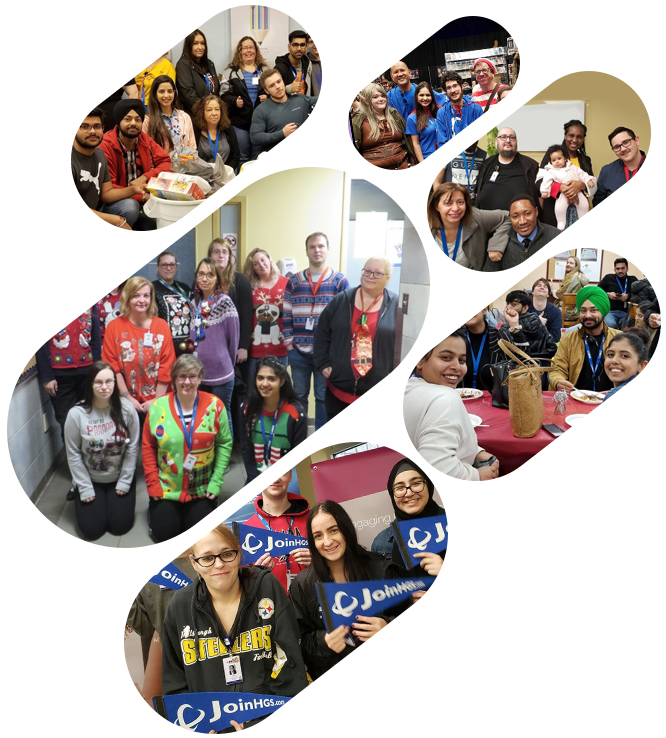
Convince Your Interviewer that You Are A Natural Problem-Solver
Bad customer service can be the Achilles' heel of any business. The way a company handles its customers' concerns and problems can make or break its reputation. In today's competitive world, organizations are constantly striving to provide top-notch customer service to retain and attract customers. A key component of exceptional customer service is problem-solving. Job seekers need to convince their interviewers that they are natural problem-solvers, capable of turning challenging situations into opportunities for growth and improvement. Mastering problem-solving interview success tips, such as articulating your approach to resolving difficult situations, is crucial for standing out as the ideal candidate.
Product or Service Knowledge
The customer service representative role calls for the ability to troubleshoot issues and provide solutions in a time-efficient manner for customers. Employers typically mention problem-solving as part of the job description and tend to gauge candidates’ competencies during the interview process.
On a daily basis, customer service representatives (CSRs) need to engage in active listening and show empathy, identify complex problems, assess needs and fixtures, probe and troubleshoot issues, and follow up on the solutions provided. To stay on top of each of these tasksin , CSRs must be able to become a natural problem solver solving skills to suit the unpredictable issues that customers might raise. When we think about necessary customer service skills, including keen observation, attention to detail, critical/analytical thinking, teamwork, and perseverance, all of these are geared to sharpen intuition for problem-solving.

How Does Bad Customer Service Damage Your Business?
Poor customer service can have a detrimental impact on businesses. It can lead to customer dissatisfaction, decreased brand loyalty, and, ultimately, a decline in revenue. In today's competitive landscape, customers have numerous alternatives at their fingertips. If they encounter subpar service, they are likely to take their business elsewhere. Not only does this result in lost sales, but it also tarnishes the company's image and reputation. Negative word-of-mouth can spread quickly, damaging a business's standing in the market. Moreover, it can lead to increased customer complaints, which demand additional resources to address. This translates to higher costs and reduced profitability.

Problem-Solving Skills in Customer Service
To be a standout candidate for a customer service role, you must highlight your natural problem solver skills in the interview. An ability to resolve issues efficiently and effectively is a prized asset in this field. Employers analyze a candidate’s aptitude for problem-solving, not only during the interview itself but also through psychometric tests that are a part of screening assessments.
This is where being a good problem solver becomes vital. When customers encounter issues, they expect quick and satisfactory resolutions. If a company does not have employees with the qualities of a good problem solver, it risks losing customers.
Understand the Role and Its Challenges
Before an interview, understand the role and anticipate its challenges thoroughly. Whether you’re preparing for call center interview questions and answers or any other role, knowing what obstacles the job entails will help you frame yourself as an effective problem solver. For example, if the job requires handling a large volume of customer complaints, be ready to describe how your natural problem solver skills have helped you in similar high-pressure environments. This kind of preparation shows that you are not only ready to face challenges but are already thinking of ways to resolve them.

1. Describe a Situation When You Faced a Difficult Problem at Work
Interviewers often begin by asking about real-life scenarios you've encountered to demonstrate that you are a great problem solver. Be prepared to share a specific example of a challenging situation you faced in a previous job. Detail the problem, your role in addressing it, and the outcome. This showcases your practical problem-solving abilities and your willingness to take on challenges.
2. Mention Instances of the Best Resolutions from Your Previous Experiences
Employers want to know how you respond to problems and critical situations. By giving specific examples of how you met and resolved such incidents, you are proactively presenting your capabilities to the interviewer. While this tactic confirms your being a good problem solver , it also reflects on your approach to providing solutions and customer service. After all, intuition plays a big part in the role, so that is another skill you will be presenting to your interviewer. Choose previous job stories that are relevant to the open role and adopt a story-telling narrative.
This way, your interviewer will be engaged. Even if your experience doesn’t match the current role, cite examples where your solution positively affected results or the brand. Problems may vary across organizations, but approaches to solving them are universally relevant.

3. Explain How You Manage a Frustrated Client
Customer service jobs often involve dealing with irate or dissatisfied customers. Share a story of how you successfully managed a frustrated client. Describe your approach to defusing the situation, your empathetic communication, and how you ultimately resolved the customer's issue to their satisfaction.
4. Describe a Time You Made a Mistake at Work and Fixed it
Everyone makes mistakes, and interviewers appreciate candidates who can admit to them and show they can rectify errors. Discuss a specific instance when you made a mistake in your job and then outline the steps you took to correct it. Highlight how you transformed a negative situation into a positive one through your natural problem solver skills.

5. Faced Difficulties While Working with the Team and Dealing with that Situation
Team dynamics can pose their own set of challenges. Interviewers want to know that as a problem solver at work, you can not only work effectively on your own but also collaborate with others. Share an experience where you encountered difficulties while working with a team and how you helped resolve those issues, leading to a more harmonious work environment.
6. Use Language that Indicates you are Solution-Focused
The first rule of problem-solving is to focus less on the problem itself. Since customer service problem-solving needs a fluid approach to match various customer scenarios, interviewers would want to know how you can adapt. Approach to problem-solving is never evaluated in isolation from a positive attitude because finding resolutions requires resilience—you may have to keep looking for alternatives until a solution fits. Interviewers can assess your attitude by your positive manner of speech and attentive body language.
During your interview, use language that portrays you as a natural problem solver. Phrases such as “I quickly identified the issue,” “I found a practical solution,” and “I worked with the team to resolve the conflict” show that you are solution-oriented.

7. Practice Your Responses Before You Appear for the Interview
”Practice makes perfect” is a popular expression for good reason. For interviewers, the job description is like a checklist. They ask probing questions to validate that you fit all the mentioned requirements. So, you can practice responses that support each requirement for the role, either through examples or through insights that you have gathered. Practicing your answers also helps in structuring your thoughts. As a result, you will appear collected and confident—also problem solver qualities that interviewers seek in candidates. For customer service representatives, this mind frame is a necessity on the job, since the brand’s voice when interacting with customers should reflect confidence.

Show Your Persistence and Positivity
A natural problem solver is persistent. In the interview, emphasize your willingness to keep searching for a solution, even when the problem seems tough. Positivity also plays a role in problem solver skills. Demonstrate that you approach problems with a can-do attitude, which helps in finding solutions more efficiently.

Demonstrate Adaptability and Creative Thinking
Flexibility and creativity are key qualities of a good problem solver. During your interview, talk about how you adapt to changing situations and use creative thinking to come up with new solutions. For example, if a traditional solution isn’t working, you might look for unconventional ways to solve a problem. This shows that you are an effective problem solver who is not afraid to think outside the box.

Showcase Analytical Thinking
Being a natural problem solver also means you have strong analytical skills. Employers value candidates who can break down complex issues into smaller, manageable parts. When giving examples, highlight your ability to analyze a problem, identify the root cause, and develop a strategy to address it. This demonstrates your ability to be a great problem solver in any work environment.
Let's consider a hypothetical situation to demonstrate how you can weave your problem-solving skills into a compelling interview response:
"In my previous role at XYZ Company, we encountered a situation where a key client from Canada was extremely dissatisfied with our services. They had experienced multiple issues with our product, which led to significant disruptions in their business operations. To make matters worse, they were on the verge of cancelling their contract, which would have resulted in a substantial loss for our company.
I took it upon myself to address the issue. First, I initiated a deep dive into the client's concerns, listening carefully to their grievances. I realized that their problems were stemming from a miscommunication within our team. Our internal processes were not aligned, and this was causing inconsistent deliverables. I saw this as an opportunity to not only solve the immediate problem but also to enhance our internal communication and processes.
I coordinated a meeting with the client and our team to discuss the issues openly. I presented a comprehensive plan that included short-term solutions to address their immediate needs and long-term improvements to prevent similar issues in the future. The client appreciated our transparency and commitment to resolving the problems.
We implemented the short-term fixes immediately and began the process of restructuring our internal communication and workflow. Within a few weeks, the client's issues were largely resolved, and they chose to continue the contract. In fact, our improved processes resulted in a more efficient and productive relationship with the client.
This experience taught me the importance of proactive problem-solving, effective communication, and continuous improvement. It reinforced my belief that addressing challenges head-on can not only salvage relationships but also strengthen them."
In this example of a problem-solving skills scenario with a solution, you've addressed a specific situation, outlined the steps you took to solve the problem, and highlighted the positive outcomes. This not only demonstrates your problem-solving abilities but also showcases your dedication to improving processes and maintaining client relationships.

Conclusion
At HGS Canada, we understand the crucial role of thorough preparation in building a successful career in customer service jobs. We are dedicated to providing individuals with essential training and unwavering support to excel in these roles. Customer service associate roles and responsibilities are central to our operations, and we place strong emphasis on recruiting individuals with the necessary skills and a customer-centric mindset. Our comprehensive recruitment process ensures that we onboard candidates who are well-prepared and committed to exceeding customer expectations.
In our rigorous interview process, we focus on real-life problem-solving scenarios to assess your ability to handle challenges effectively. For example, we may present you with a demanding customer situation and ask how you would resolve it. We believe real-world problem-solving is integral to a successful career in customer service. Our training and support systems are designed to prepare you to handle such scenarios with confidence and expertise. At HGS Canada, we go beyond initial training – we provide continuous support, professional development, and a nurturing work environment that fosters your growth. Your journey to prepare for customer service jobs is ongoing, and we're dedicated to your success every step of the way.
To sum up, convincing your interviewer that you are a natural problem solver is crucial in the competitive job market. Companies value employees who can tackle challenges head-on, find effective solutions, and turn problems into opportunities for growth. To stand out in your interview and exhibit effective problem-solving responses, be prepared to share specific examples of your problem-solving abilities, whether it's handling difficult clients, rectifying mistakes, or improving team dynamics. Use language that underscores your solution-focused mindset and practice your responses to appear confident and well-prepared. With thorough job interview preparation tips and well-practiced responses, you’ll be well on your way to securing the job.
🎧 Explore our podcast for expert advice on showcasing skills in interviews.
 Canada
Canada Colombia
Colombia India
India Jamaica
Jamaica Philippines
Philippines UK
UK US
US SA
SA
